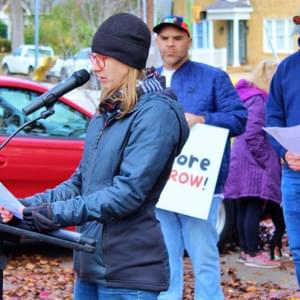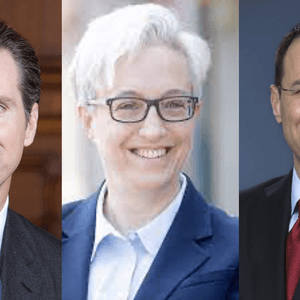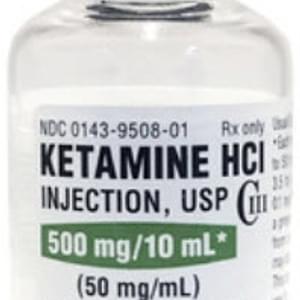By Jace Radke <jace@lasvegassun.com>
LAS VEGAS SUN
June 30, 2004
A man who spent 14 years on Nevada’s death row for a crime he said he didn’t commit settled a federal lawsuit against Clark County for $5 million, ending a claim that alleged he was not adequately represented by the Clark County public defender’s office.
Represented by an attorney who had passed the state bar only months before, Roberto Miranda was convicted of killing a man and sentenced to death in 1982. On appeal, a judge ordered a new trial because of errors in his defense, and Miranda was released in September 1996 after prosecutors decided not to pursue the case.
Miranda claimed his attorney failed to adequately defend him and said he didn’t find a witness who could have cleared him of the crime.
JoNell Thomas, one of Miranda’s attorneys, said she hopes this case brings more attention to the needs of the public defender’s office, especially when it comes to the defense of those facing the death penalty.
“This sends a clear message to the Clark County commissioners about how important it is to allocate money to the public defender’s office,” Thomas said of the settlement that was followed by U.S. District Judge Larry Hicks’ dismissal of the case. “If you don’t spend the resources on the front end to provide experienced attorneys, investigators and researchers you will pay on the back end, and you’ll pay a lot more.”
His 1998 federal lawsuit against the county named former Public Defender Morgan Harris, Deputy Public Defender Thomas Rigsby and two former Metro Police homicide detectives.
The case was initially thrown out by a federal judge and a panel of the 9th U.S. Circuit Court of Appeals before another appellate panel allowed Miranda to sue the county and Harris.
The settlement will be paid by Compass Insurance, the successor to the company that insured the county during Miranda’s trial in 1982, said Walt Cannon, who represented the former Metro detectives in the case.
Mary Miller, the county’s attorney, said that the county paid its insurance premiums in 1982 and that the settlement will not cost county taxpayers any money. The county is now self-insured, Miller said.
An undisclosed amount of attorney fees will be paid by Miranda from the settlement money, Thomas said.
Miranda, who was convicted of the stabbing death of Manuel Rodriguez Torres, insisted that a key prosecution witness had a reason to frame him, but Rigsby failed to locate witnesses that would help prove his case.
Miranda’s appellate attorney located the witnesses and convinced a judge to grant him a new trial.
According to the lawsuit, the public defender’s office “threw in the towel while Miranda sped toward his execution.”
Over the last year the county has added 10 new positions to the public defender’s office to bring the number of attorneys in the office to 80, but unless more is done others will fall through the cracks like Miranda did, said Gary Peck, executive director of the American Civil Liberties Union of Nevada.
“I commend the county for the steps they have taken, but not enough has been done,” Peck said. “There is at least one department in the public defender’s office where attorneys are carrying caseloads of 500 or more cases making it impossible for them to provide any meaningful representation.
“As long as this problem exists the county is going to be exposed to more lawsuits, settlements and judgments.”
Clark County Public Defender Phil Kohn said that it’s no secret that his office is understaffed and underfunded, with his attorneys carrying about 350 cases apiece every year.
“We have got some new bodies, but the main point is that the county has recognized the problem and made us and social services the priority,” said Kohn, who added that he would like to see that number drop to about 250 a year.
Kohn said he recognizes that the juvenile division is still buried under about 500 case per year per attorney, but added that the division has grown from two attorneys to 10 over the past two years.
Kohn said the office has made some other changes including establishing murder teams that draw on the office’s most experienced attorneys for death penalty cases.
“We don’t put rookies on death penalty cases,” Kohn said. “The murder teams insure that the horror that Roberto Miranda lived through won’t ever happen again.”
Another change is that there are now team chiefs who don’t have caseloads and can better supervise the office’s attorneys, Kohn said.
A 2003 report commissioned by the public defender’s office and prepared by the National Legal Aid and Defender Association, showed glaring problems with the growing caseloads handled by Clark County public defenders.
For example:
- The report notes that from 1983 to 2001 the number of new juvenile case assignments grew by nearly 400 percent, from 576 to 2,867, without one new attorney being added.
- The office should have a new appellate unit meeting the association’s standards.
- The public defender’s office needs new personnel to create and enforce clear performance guidelines and expectations and provide training.
Peck echoed Thomas’ comments that the settlement should be a message to the county commission.
“During the last budget cycle a number of political and policy decisions were made,” Peck said. “Money was poured into different agencies and some steps were taken in the public defender’s office, but if more isn’t done we’re going to continue to see the county gambling with tax payer money.”




